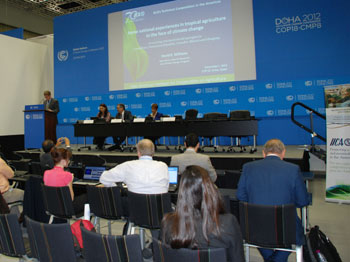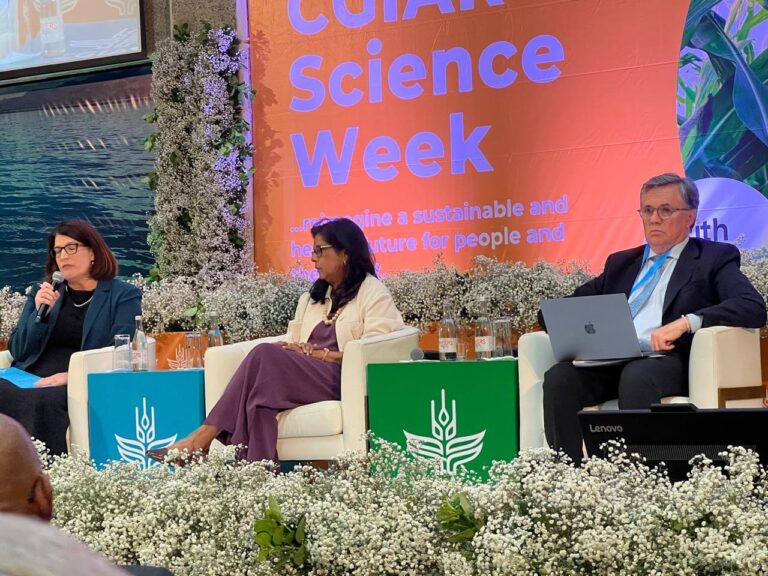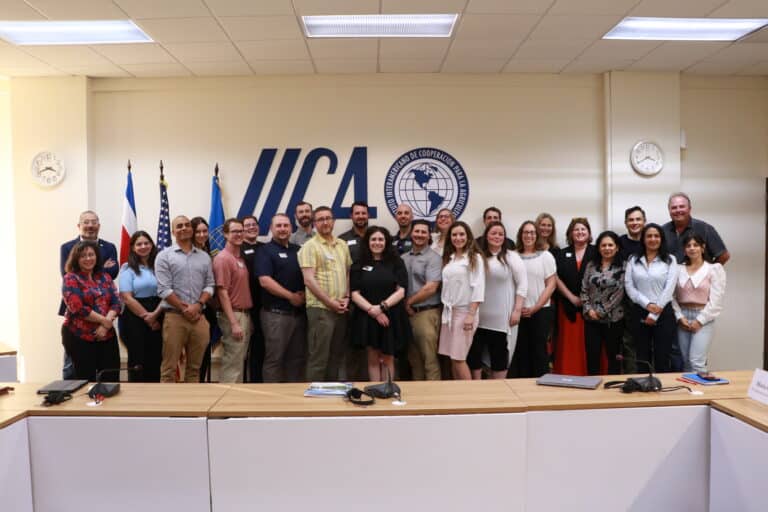With support from IICA, at the world summit on climate change the country showed how the agricultural sector can reduce emissions and make more efficient use of natural resources.

San Jose, Costa Rica, December 7, 2012 (IICA). Today, at the COP 18 in Doha, Qatar, Costa Rica’s ministers of agriculture and environment, with assistance from the Inter-American Institute for Cooperation on Agriculture (IICA) presented the seven model projects that the country is implementing to reduce greenhouse gas (GHG) emissions from agriculture and enable the sector to adapt to climate change.
The Costa Rican initiatives were presented during the Conference of the Parties to the United Nations Framework Convention on Climate Change (COP 18) by the Minister of Agriculture and Livestock, Gloria Abraham, the Minister of Environment, Energy, and Telecommunications, René Castro, and the Manager of IICA’s Agriculture, Natural Resources and Climate Change Program, David Williams. The projects focus on a range of activities, including family agriculture, dairy farming, sugarcane production, the transfer of technology to smallholders, risk management, the reduction of emissions in the coffee industry, and public-private partnerships in the banana subsector. The ultimate goal is to achieve carbon neutrality.
Marianela Feoli, Executive Director of Fundecooperación para el Desarrollo Sostenible, also took part in the presentations made to climate change researchers and specialists from all over the world in one of the activities held parallel to the COP 18 in the Qatari capital.
In her presentation, Abraham explained the efforts made by each of the subsectors, while Castro referred to agriculture’s important role in the National Climate Change Strategy, via which Costa Rica aims to achieve the goal of carbon neutrality by 2021.
“Costa Rica raised an issue that has been absent from the climate change conventions, namely, the impact of agriculture, which is extremely important in the developing countries,” René Castro pointed out.
“All the subsectors we spoke about already have an agenda establishing how they intend to mitigate the effects of climate change, how we are going to compensate, and how we are going to adapt production,” Gloria Abraham added.
David Williams said the Costa Rican cases were very received, as models that other countries could adopt to mitigate their GHG emissions and adapt their agriculture to climate change. “It shows how a country that wishes to take the lead in this field can achieve an impact that goes way beyond its borders,” he said.
More information:
david.williams@iica.int
prensa@mag.go.cr
Katiana Murillo, press advisor to the Climate Change Directorate of MINAETmurillo.katiana@gmail.com
The Costa Rican initiatives in mitigation and adaptation to climate changewww.mag.go.cr/cambio-climatico/cambio-climatico.html.











